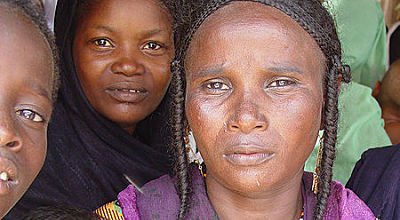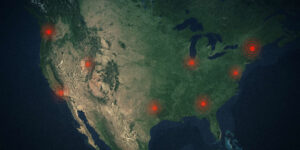Niger Replaces Afghanistan as Worst Place to be a Mother
The African nation of Niger has ousted Afghanistan as the worst place in the world to be a mother, largely due to hunger, according to an annual report by Save the Children.
Josh Korn is part of CURE International Niger’s spiritual development team. He details a key factor behind the assessment: “One of the big ones is malnutrition. The country of Niger is suffering a food shortage right now. That, obviously, has implications on babies and their mothers.”
After Niger, the next worst countries were listed as Afghanistan—which held the lowest spot for two years—Yemen, Guinea-Bissau, Mali, Eritrea, Chad, Sudan, South Sudan and the Democratic Republic of Congo.
CURE has hospitals in both Afghanistan and Niger. While they have a similar mission, they have a unique focus to each region. In Niger, CURE’s hospital is the only one of its kind in the entire country.
“Our hospital treats children with disabilities,” Korn explains. “We do a lot of cleft lip repairs, clubfoot and we also treat a lot of burn victims.”
Located in the capital city of Niamey, the hospital attracts patients from every region of the country.
With two operating theaters and 24 beds, their annual surgical capacity is approximately 1,000. They typically see more than 250 patients a month at their outpatient clinics. The hospital staff totals 63, including five expatriates.
In 2011, the team launched a national CURE Clubfoot Worldwide program in Niger with the ultimate goal of treating every case of clubfoot in the nation. Their team has already been providing training and support to other health-care providers in clubfoot treatment methods and is continuing to plan future trainings as they expand the program.
Korn says the food crisis plays a role in what they do. Sometimes malnourished children don’t have the strength to recuperate from a surgery, so they have to be brought up to a healthy weight first.
“We give them their square meals a day, and unfortunately, that’s better than a lot of them have at home, especially when they come from a village,” Korn says. “A lot of times, they don’t want to leave the hospital.”
Other times, just getting to the hospital is a hardship. The team responds as best they can to the needs with the resources they have. It’s all part of their mission to heal the sick and proclaim the kingdom of God.
“When we’re doing a life-changing operation on a child, that is proclaiming the kingdom of God, and we’re trying to make that as exclusive as possible,” Korn says. “People here in Niger are very receptive to hearing about Jesus and about the gospel.”
As the crisis worsens, CURE will continue to work to be part of the solution and make the environment for being a mother a little less fearful. Their immediate need?
“Pray specifically that God will send the rains soon,” Korn says. “The rainy season in Niger is supposed to be starting now, and so far, we haven’t had any rain. Because of the crops that were so unsuccessful last year, we’re having massive food shortage now. If the rains don’t come on time this year, it’ll be an even bigger problem.”




























































